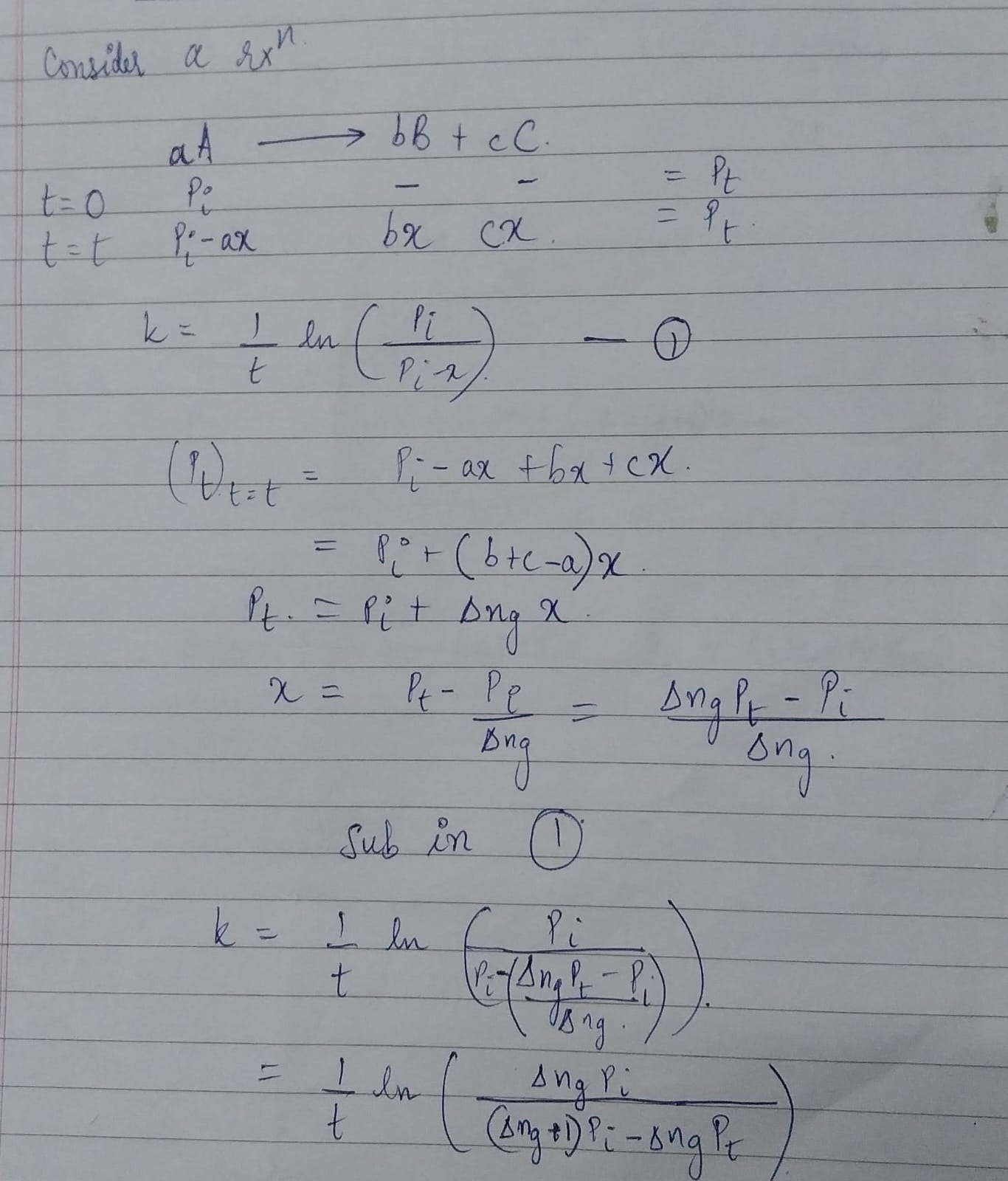There is a specific example cited in our NCERT Class 12 textbook, to find out the rate law equation for a general gaseous reaction, $$\ce{A->B + C}$$
It describes the entire procedure as shown:
Let us consider a typical first order gas phase reaction $\ce{A(g) -> B(g) + C(g)}$. Let $\pu{p_i}$ be the initial pressure of A and $\pu{p_t}$, the total pressure at time 'ť'. Integrated rate equation for such a reaction can be derived as $$\mathrm{Total \space pressure}\space\pu{p_t = p_A + p_B + p_C}\space \mathrm{(pressure\space units)}$$ If $\pu{x atm}$ be the decrease in pressure of A at time $t$ and one mole each of B and C is being formed, the increase in pressure of B and C will also be $\pu{x atm}$ each.
\begin{array}{|c|c|c|c|} \hline & \ce{A} & \ce{B} & \ce{C} \\ \hline \text{At } t = 0 & \pu{p_i} & 0 & 0 \\ \hline \text{At time } t & \pu{p_i - x} & x & x \\ \hline \end{array} where, $\pu{p_i}$ is the initial pressure at $t= 0$. $$\pu{p_t=(p_i-x)+x+x=p_i+x}$$ $$\pu{x=p_t-p_i}$$ where, $$\pu{p_A=p_i-x=p_i-(p_t-p_i)= 2p_i-p_t}$$ Finally, $$\pu{k=\frac{2.303}{t}log(\frac{p_i}{2p_i-p_t})}$$
Now I am trying to derive something for a general equation. The final formula would look like:
$$\pu{\frac{2.303}{t}log(\frac{(z-1)p_i}{zp_i-p_t})}$$ where z is number of gaseous products from one mole of gaseous reactant. Fine! But one thing: I want it with respect to difference in gas moles.
Considering the reaction $\ce{aA->bB + cC}$, I did try it, and got something like this.
Does anyone know any alternative method?

